Gothic secular and domestic architecture
Gothic architecture is a style of architecture that flourished during the high and late medieval period. It evolved from Romanesque architecture and was succeeded by Renaissance architecture.
Originating in 12th-century France and lasting into the 16th century, Gothic architecture is most familiar as the architecture of many of the great cathedrals, abbeys and churches of Europe. It is also the architecture of many non-religious buildings, such as castles, palaces, town halls, guild halls, universities and to a less prominent extent, private dwellings.
Although secular and civic architecture in general was subordinate in importance to ecclesiastical architecture, civic architecture grew in importance as the Middle Ages progressed. David Watkin, for example writes about secular Gothic architecture in present-day Belgium: "However, it is the secular architecture, the guild-halls and town halls of her prosperous commercial cities, which make Belgium unique. Their splendour often exceeds that of contemporary ecclesiastical foundations, while their decorative language was not without influence on churches such as Antwerp Cathedral."[2] Another exception was Venetian Gothic architecture, which is at its most distinctive in the many surviving palace facades.
Background
Political
At the end of the 12th century, Europe was divided into a multitude of city states and kingdoms. The area encompassing modern Germany, southern Denmark, the Netherlands, Belgium, Luxembourg, Switzerland, Austria, Slovenia, Czech Republic and much of northern Italy (excluding Venice and Papal State) was nominally part of the Holy Roman Empire, but local rulers exercised considerable autonomy. France, Denmark, Poland, Hungary, Portugal, Scotland, Castile, Aragon, Navarre, Sicily and Cyprus were independent kingdoms, as was the Angevin Empire, whose Plantagenet kings ruled England and large domains in what was to become modern France.[3] Norway came under the influence of England, while the other Scandinavian countries, the Baltic States and Poland were influenced by trading contacts with the Hanseatic League. Angevin kings brought the Gothic tradition from France to Southern Italy, while Lusignan kings introduced French Gothic architecture to Cyprus.
Throughout Europe at this time there was a rapid growth in trade and an associated growth in towns.[4][5] Germany and the Lowlands had large flourishing towns that grew in comparative peace, in trade and competition with each other, or united for mutual weal, as in the Hanseatic League. Civic building was of great importance to these towns as a sign of wealth and pride. England and France remained largely feudal and produced grand domestic architecture for their kings, dukes and bishops, rather than grand town halls for their burghers.
Religious
The Catholic Church prevailed across Europe at this time, influencing not only faith but also wealth and power. Bishops were appointed by the Church and often ruled as virtual princes over large estates. The early Medieval periods had seen a rapid growth in monasticism, with several different orders being prevalent and spreading their influence widely. Foremost were the Benedictines whose monastic establishments vastly outnumbered any others in England. A part of their influence was that they tended to build within towns. The Cluniac and Cistercian Orders were prevalent in France, the great monastery at Cluny having established a formula for a well planned monastic site which was then to influence all subsequent monastic building, including domestic quarters, for many centuries.[4][5]
Geographic
From the 10th to the 13th century, Romanesque architecture had become a pan-European style and manner of construction, affecting buildings in countries as far apart as Ireland, Croatia, Sweden and Sicily. The same wide geographic area was then affected by the development of Gothic architecture, but the acceptance of the Gothic style and methods of construction differed from place to place, as did the expressions of Gothic taste. The proximity of some regions meant that modern country borders do not define divisions of style. On the other hand, some regions such as England and Spain produced defining characteristics rarely seen elsewhere, except where they have been carried by itinerant craftsmen, or the transfer of bishops. Regional differences that are apparent in the Romanesque period often become even more apparent in the Gothic.
The local availability of materials affected both construction and style. In France, limestone was readily available in several grades, the very fine white limestone of Caen being favoured for sculptural decoration. England had coarse limestone and red sandstone as well as dark green Purbeck marble which was often used for architectural features.
In Northern Germany, Netherlands, northern Poland, Denmark, and the Baltic countries local building stone was unavailable but there was a strong tradition of building in brick. The resultant style, Brick Gothic, is called "Backsteingotik" in Germany and Scandinavia and is associated with the Hanseatic League. In Italy, stone was used for fortifications, but brick was preferred for other buildings. Because of the extensive and varied deposits of marble, many buildings were faced in marble, or were left with undecorated façade so that this might be achieved at a later date.
The availability of timber also influenced the style of architecture, with timber buildings prevailing in Scandinavia. Availability of timber affected methods of roof construction across Europe. It is thought that the magnificent hammer-beam roofs of England were devised as a direct response to the lack of long straight seasoned timber by the end of the Medieval period, when forests had been decimated not only for the construction of vast roofs but also for ship building.[4][7]
Scope
New cities, town planning and urbanisation
Several new towns and cities were established in Europe during the high and late Middle Ages. Beginning in the 12th century, urbanisation slowly again started to spread across Europe, where urban development had since the fall of the Roman Empire in general been brought to a standstill or of very limited scope. With time, as cities grew and new towns were established, this spurred a political development that slowly began to challenge the feudal system dominant at the time. The growing power of the cities was reflected in the erection of town halls, guilds, and other mercantile and civic buildings.[2] As noted above, regional differences in the structure of political power is reflected in the architecture of medieval cities.
While most cities during the Gothic era grew over a longer period in a more or less haphazard way, there are some examples of centralised town planning from the period. Several new towns designed with grid plans were founded in the south of France in the 13th and 14th centuries, where they are known as Bastides.[9] These cities and towns had their own characteristics: "Purpose-built on unoccupied land, these bastides were immediately different from older medieval villages with winding streets that grew willy-nilly over decades. The bastides adopted the regular square grid of ancient Roman towns, with an arcaded market square at the center. In most cases, the church was set off to the side of the square, pointing to the priority given to trade."[10] The city of Aigues Mortes in southern France is an unusually large example of a consciously redesigned, if not strictly new, city.
In England, a symmetrical plan was conceived but never completely carried out for New Winchelsea, one of the so-called Cinque Ports, wine trading posts in Kent and Sussex.[2] England is also the site of what is claimed to be the oldest purely residential street with its original buildings all surviving intact in Europe, Vicar's Close in Wells, Somerset, a planned street dating from the 1360s.[11] In Wales, Edward I commissioned a series of castles and adjacent new towns as part of a settlement policy with the intent to pacify the recently conquered principality of Wales. Caernarfon and Conwy are two such planned towns of regular layout.[12]
- Town planning
The medieval street layout of Aigues-Mortes, France, developed into a crusader port during the 13th century.
Plan of Caernarfon, Wales from 1610, showing the castral town established in Wales to "illustrate in a more symbolic than strategic fashion English power."[12]
It was not only new, founded cities that had extensive building regulations. London, Florence, Paris, Venice and numerous smaller cities in Spain and Italy had rules concerning not only the height and shape of buildings, but also for example regulating the width of streets, the projection of roofs and rules concerning waste management, drainage and fire regulations. The Piazza del Campo in Siena, Italy is one of the earliest examples of "coherent town planning along aesthetic lines, perhaps for the first time since antiquity."[2] Official regulations governing the size of the palaces facing the square date from 1298. The famous square is dominated by the Palazzo Pubblico, the town hall. With growing prosperity and an emerging sense of civic pride, town halls such as Palazzo Pubblico often became a show-piece of the cities' growing confidence. In the cities of northern Italy, this development started early and many Gothic town halls and other civic monuments have to a large extent survived to this day.[2]
Outside of Italy, there was a strong growth of trade not least in the Low Countries, and along the Rhine and Rhône rivers. Present-day Belgium is justly famous for its well-preserved medieval cities, like Bruges and Ghent, and its rich heritage of some of the finest civic Gothic architecture, such as the stupendous town halls of Mons, Ghent, Leuven and Oudenaarde.[2]
Lübeck, founded in 1143, quickly established itself as the centre of the Hanseatic League, and the source of inspiration for cities established and expanded in the Baltic Sea region as trade routes in the area grew in importance. The example of Lübeck influenced and promoted similar architectural development in many of the cities in the area, albeit of course with local variations. Notable examples of such Hanseatic towns with rich medieval heritage include Visby,[14] Tallinn,[15] Toruń,[16] Stralsund and Wismar[17] to name a few. Characteristic for many of these towns is the extensive use of brick, in the so-called Brick Gothic style.[2]
- Civic pride: town halls
Oudenaarde Town Hall built by Hendrik van Pede in 1526-1537 as one of the last Gothic town halls of present-day Belgium.
Tallinn Town Hall (completed 1404). Hanseatic towns such as Tallinn demonstrated their independence through large town halls.
The fortress-like Palazzo Vecchio (begun 1299) in Florence.
Old Town Hall in Toruń, begun in 1259, built mainly in 14th century, housed originally not only city council, but had also commercial, juiridical and representative function
Castles, fortresses and military structures
Few countries in Europe can rival Spain when it comes to the number of well-preserved Gothic castles, primarily dating from the 15th century. Typical examples of these often severe-looking, strictly military structures are Torrelobatón, El Barco de Ávila and Montealegre castles. An atypical but inventive piece of Gothic architecture is the completely round Bellver Castle on Mallorca island, built in 1300-14 for James II of Majorca by architect Pere Salvà.[2]
In France, the late medieval period — especially the time of the Hundred Years' War — saw the construction of a large number of new, feudal castles and walled towns. Typically, French castles from this time were centred on an either circular or polygonal keep. Examples include the castles at Gisors and Provins.[2]
In parts of what is today Poland and the Baltic States, the crusading Teutonic Knights erected castles, so-called Ordensburgen in recently conquered areas. The crusading order's former headquarters at Malbork (German: Marienburg) castle in Poland is, together with the Papal palace in Avignon, one of the greatest secular buildings of the Middle Ages.[2] Other examples include Kwidzyn (Poland) and Turaida (Latvia).
Many towns and cities in Europe during this time were protected by more or less extensive town walls. Notable examples of still extant Gothic town walls still surround the historical centres of Carcassonne, France, Tallinn, Estonia and York, England.
Universities and schools
The colleges of Oxford and Cambridge universities in England comprise an outstanding example of English Gothic architecture. The source of inspiration for these English colleges is not the architecture of monasteries, but rather 14th and 15th century manor houses.[2] The structure of the colleges originally developed haphazardly but New College, Oxford, founded in 1379, from the beginning received a planned structure centred on a quadrangle and a cloister. The architectural ensemble incorporated a hall, a chapel, a library and accommodation, and was designed by William Wynford. The concept was further developed at Queens' College, Cambridge in the 1440s, probably designed by Reginald Ely.[2] An example of a college inspired by monastic architecture can be found in Paris, in the College des Bernardins[18] Formerly part of Paris University, this building, ordered in 1245 by the abbot Stephen of Lexington, draws upon Cistercian architecture.
- Universities
Collegium Maius in Kraków, Poland. An example of late Gothic brick architecture. Professors lived and worked upstairs, while lectures were held downstairs.
The Mob Quad at Merton College, Oxford in England is one of the oldest university quadrangles of Oxford. The pattern has since been copied at many other colleges and universities worldwide.
Patio de las Escuelas Menores, University of Salamanca, Spain, begun in 1428.
Hospitals and almshouses
The organisation and practices of the hospital-system in Medieval Europe evolved from Christian monasticism. But the Middle Ages saw the development of both purpose-built, sometimes specialised hospitals and almshouses, conceived to provide housing for the elderly or long-term ill. In the 13th century, urban communities gradually took over the responsibility of caring for the sick.[19] Concerning the architecture of such purpose-built hospitals, at least in England "the basic layout of larger, purpose-built hospitals was quite consistent. A large 'infirmary hall' with rows of beds on each side housed the sick and the infirm. The chapel was in full view - the care of the soul was just as important as the care of the body."[20] Notable examples of almshouses include the Hôtel Dieu in Beaune, France, the Hospital of St Cross in Winchester, England and the Hospital of the Holy Spirit in Lübeck, Germany.
- Hospitals and almshouses
Interior view of the Hôtel Dieu, Beaune.
The Hospital of St Cross is England's oldest and largest almshouse.
Bridges
Among the most impressive feats of medieval engineering is bridge construction, "comparable with the great cathedrals of the period".[21] Bridges from this period are characterised by typically Gothic ogival arches. It was not uncommon for such bridges to also provide room for shops, chapels and other structures.[22] This can still be seen at the Ponte Vecchio, Florence (Italy). Other fine examples of still extant medieval bridges are the Pont Saint-Bénezet or Pont d'Avignon, Pont Valentré and Pont d'Orthez, all in France, as well as the famous Charles Bridge, Prague (Czech Republic).
- Bridges
Pont Saint-Bénezet, Avignon
Ponte Vecchio, Florence
Houses and palaces
Purely residential and even palatial buildings also survive in several French cities. The Palais des Papes, the residence of the Pope during the Avignon Papacy, is one of the largest and most important Gothic buildings in Europe.[2] The partially preserved Conciergerie in Paris, formerly a royal palace, is a less intact example of medieval palatial architecture in France. The house of Jacques Coeur in Bourges and the Hôtel de Cluny in Paris are examples of lesser (not royal or papal) but still luxurious, urban residences from the late medieval period.[2]
At the very end of the Gothic period, Benedikt Rejt in Bohemia (present-day Czech Republic), drawing on a local tradition of elaborate tracery and inventiveness (so-called Sondergotik) best represented by Peter Parler, created some of the most elaborate examples of complex vaulting in Gothic architecture at Prague Castle. The Vladislav Hall (built 1493-1502) by Rejt is the largest secular hall of the late Middle Ages.[2] Here and in the so-called "Riders' Staircase" (also in Prague Castle), Rejt devised unique vaults: "[The Vladislav Hall's] amazing vault boasts intertwined double-curved or three-dimensional lierne ribs reaching almost to the floor. Similarly inventive is the vault over the Riders' Staircase with its twisting, asymmetrical, truncated ribs."[2]
The castle of Olite in Navarre, Spain was originally built as a defensive castle but later redesigned into a purely residential palace for the kings of Navarre. It was equipped with such luxuries as a rooftop garden, an aviary, a pool and a lion's den.[2]
Other structures and buildings
A number of medieval shipyards, notably the Drassanes[23] in Barcelona, Spain and the Venetian Arsenal in Venice, Italy survive to this day. Of these two, the Drassanes is the most purely Gothic building complex, while the Venetian arsenal was arguably the most important — indeed, it was the largest industrial complex in Europe prior to the Industrial Revolution.
References
- "Civil gothic architecture". Generalitat de Catalunya. Archived from the original on 24 December 2013. Retrieved 22 December 2013.
https://en.wikipedia.org/wiki/Gothic_secular_and_domestic_architecture
Gothic Revival architecture
Gothic Revival (also referred to as Victorian Gothic or neo-Gothic) is an architectural movement that began in the late 1840s in England. The movement gained momentum and expanded in the first half of the 19th century, as increasingly serious and learned admirers of the neo-Gothic styles sought to revive medieval Gothic architecture, intending to complement or even supersede the neoclassical styles prevalent at the time. Gothic Revival draws upon features of medieval examples, including decorative patterns, finials, lancet windows, and hood moulds. By the middle of the 19th century, Gothic Revival had become the preeminent architectural style in the Western world, only to fall out of fashion in the 1880s and early 1890s.
The Gothic Revival movement's roots are intertwined with philosophical movements associated with Catholicism and a re-awakening of high church or Anglo-Catholic belief concerned by the growth of religious nonconformism. Ultimately, the "Anglo-Catholicism" tradition of religious belief and style became known for its intrinsic appeal in the third quarter of the 19th century. Gothic Revival architecture varied considerably in its faithfulness to both the ornamental style and principles of construction of its medieval original, sometimes amounting to little more than pointed window frames and touches of neo-Gothic decoration on a building otherwise on a wholly 19th-century plan and using contemporary materials and construction methods, most notably in the use of iron and, after the 1880s, steel in ways never seen in medieval exemplars.
In parallel with the ascendancy of neo-Gothic styles in 19th-century England, interest spread to the rest of Europe, Australia, Africa and the Americas; the 19th and early 20th centuries saw the construction of very large numbers of Gothic Revival structures worldwide. The influence of Revivalism had nevertheless peaked by the 1870s. New architectural movements, sometimes related as in the Arts and Crafts movement, and sometimes in outright opposition, such as Modernism, gained ground, and by the 1930s the architecture of the Victorian era was generally condemned or ignored. The later 20th century saw a revival of interest, manifested in the United Kingdom by the establishment of the Victorian Society in 1958.
Roots
The rise of evangelicalism in the eighteenth and early nineteenth centuries saw in England a reaction in the high church movement which sought to emphasise the continuity between the established church and the pre-Reformation Catholic church.[1] Architecture, in the form of the Gothic Revival, became one of the main weapons in the high church's armoury. The Gothic Revival was also paralleled and supported by "medievalism", which had its roots in antiquarian concerns with survivals and curiosities. As "industrialisation" progressed, a reaction against machine production and the appearance of factories also grew. Proponents of the picturesque such as Thomas Carlyle and Augustus Pugin took a critical view of industrial society and portrayed pre-industrial medieval society as a golden age. To Pugin, Gothic architecture was infused with the Christian values that had been supplanted by classicism and were being destroyed by industrialisation.[2]
Gothic Revival also took on political connotations; with the "rational" and "radical" Neoclassical style being seen as associated with republicanism and liberalism (as evidenced by its use in the United States and to a lesser extent in Republican France), the more spiritual and traditional Gothic Revival became associated with monarchism and conservatism, which was reflected by the choice of styles for the rebuilt government centres of the British parliament's Palace of Westminster in London, the Canadian Parliament Buildings in Ottawa and the Hungarian Parliament Building in Budapest.[3]
In English literature, the architectural Gothic Revival and classical Romanticism gave rise to the Gothic novel genre, beginning with The Castle of Otranto (1764) by Horace Walpole,[citation needed] and inspired a 19th-century genre of medieval poetry that stems from the pseudo-bardic poetry of "Ossian". Poems such as "Idylls of the King" by Alfred, Lord Tennyson recast specifically modern themes in medieval settings of Arthurian romance. In German literature, the Gothic Revival also had a grounding in literary fashions.[4]
Survival and revival
Gothic architecture began at the Basilica of Saint Denis near Paris, and the Cathedral of Sens in 1140[5] and ended with a last flourish in the early 16th century with buildings like Henry VII's Chapel at Westminster.[6] However, Gothic architecture did not die out completely in the 16th century but instead lingered in on-going cathedral-building projects; at Oxford and Cambridge Universities, and in the construction of churches in increasingly isolated rural districts of England, France, Germany, the Polish–Lithuanian Commonwealth and in Spain.[7] Londonderry Cathedral (completed 1633) was a major new structure in the Perpendicular Gothic style.[8]
In Bologna, in 1646, the Baroque architect Carlo Rainaldi constructed Gothic vaults (completed 1658) for the Basilica of San Petronio in Bologna, which had been under construction since 1390; there, the Gothic context of the structure overrode considerations of the current architectural mode. Guarino Guarini, a 17th-century Theatine monk active primarily in Turin, recognized the "Gothic order" as one of the primary systems of architecture and made use of it in his practice.[9]
Likewise, Gothic architecture survived in an urban setting during the later 17th century, as shown in Oxford and Cambridge, where some additions and repairs to Gothic buildings were considered to be more in keeping with the style of the original structures than contemporary Baroque. Sir Christopher Wren's Tom Tower for Christ Church, University of Oxford,[a] and, later, Nicholas Hawksmoor's west towers of Westminster Abbey, blur the boundaries between what is called Gothic survival and the Gothic Revival.[11] Throughout France in the 16th and 17th centuries, churches such as St-Eustache continued to be built following Gothic forms cloaked in classical details, until the arrival of Baroque architecture.[12]
Even in Central Europe of the late 17th and 18th centuries, where Baroque dominated, some architects used elements of the Gothic style. The most important example is Jan Santini Aichel, whose Pilgrimage Church of Saint John of Nepomuk in Žďár nad Sázavou, Czech Republic, represents a peculiar and creative synthesis of Baroque and Gothic.[13] An example of another and less striking use of the Gothic style in the time is the Basilica of Our Lady of Hungary in Márianosztra, Hungary, whose sanctuary was long considered authentically Gothic, because the 18th-century architect used medieval shapes to emphasize the continuity of the monastic community with its 14th-century founders.[14]
During the mid-18th century rise of Romanticism, an increased interest and awareness of the Middle Ages among influential connoisseurs created a more appreciative approach to selected medieval arts, beginning with church architecture, the tomb monuments of royal and noble personages, stained glass, and late Gothic illuminated manuscripts. Other Gothic arts, such as tapestries and metalwork, continued to be disregarded as barbaric and crude, however sentimental and nationalist associations with historical figures were as strong in this early revival as purely aesthetic concerns.[15]
German Romanticists (including philosopher and writer Goethe and architect Karl Friedrich Schinkel), began to appreciate the picturesque character of ruins—"picturesque" becoming a new aesthetic quality—and those mellowing effects of time that the Japanese call wabi-sabi and that Horace Walpole independently admired, mildly tongue-in-cheek, as "the true rust of the Barons' wars".[b][17] The "Gothick" details of Walpole's Twickenham villa, Strawberry Hill House begun in 1749, appealed to the rococo tastes of the time,[c][19] and were fairly quickly followed by James Talbot at Lacock Abbey, Wiltshire.[20] By the 1770s, thoroughly neoclassical architects such as Robert Adam and James Wyatt were prepared to provide Gothic details in drawing-rooms, libraries and chapels and, for William Beckford at Fonthill in Wiltshire, a complete romantic vision of a Gothic abbey.[d][23]
Some of the earliest architectural examples of the revived are found in Scotland. Inveraray Castle, constructed from 1746 for the Duke of Argyll, with design input from William Adam, displays the incorporation of turrets.[e] The architectural historian John Gifford writes that the castellations were the "symbolic assertion of the still quasi-feudal power [the duke] exercised over the inhabitants within his heritable jurisdictions".[25] Most buildings were still largely in the established Palladian style, but some houses incorporated external features of the Scots baronial style. Robert Adam's houses in this style include Mellerstain[26] and Wedderburn[27] in Berwickshire and Seton Castle in East Lothian,[28] but it is most clearly seen at Culzean Castle, Ayrshire, remodelled by Adam from 1777.[29] The eccentric landscape designer Batty Langley even attempted to "improve" Gothic forms by giving them classical proportions.[30]
A younger generation, taking Gothic architecture more seriously, provided the readership for John Britton's series Architectural Antiquities of Great Britain, which began appearing in 1807.[31] In 1817, Thomas Rickman wrote an Attempt... to name and define the sequence of Gothic styles in English ecclesiastical architecture, "a text-book for the architectural student". Its long antique title is descriptive: Attempt to discriminate the styles of English architecture from the Conquest to the Reformation; preceded by a sketch of the Grecian and Roman orders, with notices of nearly five hundred English buildings. The categories he used were Norman, Early English, Decorated, and Perpendicular. It went through numerous editions, was still being republished by 1881, and has been reissued in the 21st century.[f][33]
The most common use for Gothic Revival architecture was in the building of churches. Major examples of Gothic cathedrals in the U.S. include the cathedrals of St. John the Divine and St. Patrick in New York City and the Washington National Cathedral on Mount St. Alban in northwest Washington, D.C. One of the biggest churches in Gothic Revival style in Canada is Basilica of Our Lady Immaculate in Ontario.[34]
Gothic Revival architecture remained one of the most popular and long-lived of the many revival styles of architecture. Although it began to lose force and popularity after the third quarter of the 19th century in commercial, residential and industrial fields, some buildings such as churches, schools, colleges and universities were still constructed in the Gothic style, often known as "Collegiate Gothic", which remained popular in England, Canada and in the United States until well into the early to mid-20th century. Only when new materials, like steel and glass along with concern for function in everyday working life and saving space in the cities, meaning the need to build up instead of out, began to take hold did the Gothic Revival start to disappear from popular building requests.[35]
Gothic Revival in the other decorative arts
The revived Gothic style was not limited to architecture. Classical Gothic buildings of the 12th to 16th Centuries were a source of inspiration to 19th-century designers in numerous fields of work. Architectural elements such as pointed arches, steep-sloping roofs and fancy carvings like lace and lattice work were applied to a wide range of Gothic Revival objects. Some examples of Gothic Revivals influence can be found in heraldic motifs in coats of arms, painted furniture with elaborate painted scenes like the whimsical Gothic detailing in English furniture is traceable as far back as Lady Pomfret's house in Arlington Street, London (1740s),[36] and Gothic fretwork in chairbacks and glazing patterns of bookcases is a familiar feature of Chippendale's Director (1754, 1762), where, for example, the three-part bookcase employs Gothic details with Rococo profusion, on a symmetrical form.[37][38] Abbotsford in the Scottish Borders, rebuilt from 1816 by Sir Walter Scott and paid for by the profits from his, hugely successful, historical novels, exemplifies the "Regency Gothic" style.[g][40] Gothic Revival also includes the reintroduction of medieval clothes and dances in historical re-enactments staged especially in the second part of the 19th century, although one of the first, the Eglinton Tournament of 1839, remains the most famous.[41]
During the Bourbon Restoration in France (1814–1830) and the Louis-Philippe period (1830-1848), Gothic Revival motifs start to appear, together with revivals of the Renaissance and of Rococo. During these two periods, the vogue for medieval things led craftsmen to adopt Gothic decorative motifs in their work, such as bell turrets, lancet arches, trefoils, Gothic tracery and rose windows. This style was also as "Cathedral style" ("À la catédrale").[42][43]
By the mid-19th century, Gothic traceries and niches could be inexpensively re-created in wallpaper, and Gothic blind arcading could decorate a ceramic pitcher. Writing in 1857, J. G. Crace, an influential decorator from a family of influential interior designers, expressed his preference for the Gothic style: "In my opinion there is no quality of lightness, elegance, richness or beauty possessed by any other style... [or] in which the principles of sound construction can be so well carried out".[44] The illustrated catalogue for the Great Exhibition of 1851 is replete with Gothic detail, from lacemaking and carpet designs to heavy machinery. Nikolaus Pevsner's volume on the exhibits at the Great Exhibition, High Victorian Design published in 1951, was an important contribution to the academic study of Victorian taste and an early indicator of the later 20th century rehabilitation of Victorian architecture and the objects with which they decorated their buildings.[45]
In 1847, eight thousand British crown coins were minted in proof condition with the design using an ornate reverse in keeping with the revived style. Considered by collectors to be particularly beautiful, they are known as 'Gothic crowns'. The design was repeated in 1853, again in proof. A similar two shilling coin, the 'Gothic florin' was minted for circulation from 1851 to 1887.[46][47]
Romanticism and nationalism
French neo-Gothic had its roots in the French medieval Gothic architecture, where it was created in the 12th century. Gothic architecture was sometimes known during the medieval period as the "Opus Francigenum", (the "French Art"). French scholar Alexandre de Laborde wrote in 1816 that "Gothic architecture has beauties of its own",[48] which marked the beginning of the Gothic Revival in France. Starting in 1828, Alexandre Brogniart, the director of the Sèvres porcelain manufactory, produced fired enamel paintings on large panes of plate glass, for King Louis-Philippe's Chapelle royale de Dreux, an important early French commission in Gothic taste,[49] preceded mainly by some Gothic features in a few jardins paysagers.[50]
The French Gothic Revival was set on sounder intellectual footings by a pioneer, Arcisse de Caumont, who founded the Societé des Antiquaires de Normandie at a time when antiquaire still meant a connoisseur of antiquities, and who published his great work on architecture in French Normandy in 1830.[51] The following year Victor Hugo's historical romance novel The Hunchback of Notre-Dame appeared, in which the great Gothic cathedral of Paris was at once a setting and a protagonist in a hugely popular work of fiction. Hugo intended his book to awaken a concern for the surviving Gothic architecture left in Europe, however, rather than to initiate a craze for neo-Gothic in contemporary life.[52] In the same year that Notre-Dame de Paris appeared, the new French restored Bourbon monarchy established an office in the Royal French Government of Inspector-General of Ancient Monuments, a post which was filled in 1833 by Prosper Mérimée, who became the secretary of a new Commission des Monuments Historiques in 1837.[53] This was the Commission that instructed Eugène Viollet-le-Duc to report on the condition of the Abbey of Vézelay in 1840.[54] Following this, Viollet le Duc set out to restore most of the symbolic buildings in France including Notre Dame de Paris,[55] Vézelay,[56] Carcassonne,[57] Roquetaillade castle,[58] the famous Mont-Saint-Michel Abbey on its peaked coastal island,[59] Pierrefonds,[60] and Palais des Papes in Avignon.[57] When France's first prominent neo-Gothic church[h] was built, the Basilica of Saint-Clotilde,[i] Paris, begun in 1846 and consecrated in 1857, the architect chosen was of German extraction, Franz Christian Gau, (1790–1853); the design was significantly modified by Gau's assistant, Théodore Ballu, in the later stages, to produce the pair of flèches that crown the west end.[63]
In Germany, there was a renewal of interest in the completion of Cologne Cathedral. Begun in 1248, it was still unfinished at the time of the revival. The 1820s "Romantic" movement brought a new appreciation of the building, and construction work began once more in 1842, marking a German return for Gothic architecture. St. Vitus Cathedral in Prague, begun in 1344, was also completed in the mid-19th and early 20th centuries.[64] The importance of the Cologne completion project in German-speaking lands has been explored by Michael J. Lewis, "The Politics of the German Gothic Revival: August Reichensperger". Reichensperger was himself in no doubt as to the cathedral's central position in Germanic culture; "Cologne Cathedral is German to the core, it is a national monument in the fullest sense of the word, and probably the most splendid monument to be handed down to us from the past".[65]
Because of Romantic nationalism in the early 19th century, the Germans, French and English all claimed the original Gothic architecture of the 12th century era as originating in their own country. The English boldly coined the term "Early English" for "Gothic", a term that implied Gothic architecture was an English creation. In his 1832 edition of Notre Dame de Paris, author Victor Hugo said "Let us inspire in the nation, if it is possible, love for the national architecture", implying that "Gothic" is France's national heritage. In Germany, with the completion of Cologne Cathedral in the 1880s, at the time its summit was the world's tallest building, the cathedral was seen as the height of Gothic architecture.[66] Other major completions of Gothic cathedrals were of Regensburger Dom (with twin spires completed from 1869 to 1872),[67] Ulm Münster (with a 161-meter tower from 1890)[68] and St. Vitus Cathedral in Prague (1844–1929).[69]
In Belgium, a 15th-century church in Ostend burned down in 1896. King Leopold II funded its replacement, the Saint Peter's and Saint Paul's Church, a cathedral-scale design which drew inspiration from the neo-Gothic Votive Church in Vienna and Cologne Cathedral.[70] In Mechelen, the largely unfinished building drawn in 1526 as the seat of the Great Council of The Netherlands, was not actually built until the early 20th century, although it closely followed Rombout II Keldermans's Brabantine Gothic design, and became the 'new' north wing of the City Hall.[71][72] In Florence, the Duomo's temporary façade erected for the Medici-House of Lorraine nuptials in 1588–1589, was dismantled, and the west end of the cathedral stood bare again until 1864, when a competition was held to design a new façade suitable to Arnolfo di Cambio's original structure and the fine campanile next to it. This competition was won by Emilio De Fabris, and so work on his polychrome design and panels of mosaic was begun in 1876 and completed by 1887, creating the Neo-Gothic western façade.[73] Eastern Europe also saw much Revival construction; in addition to the Hungarian Parliament Building in Budapest,[3] the Bulgarian National Revival saw the introduction of Gothic Revival elements into its vernacular ecclesiastical and residential architecture. The largest project of the Slavine School is the Lopushna Monastery cathedral (1850–1853), though later churches such as Saint George's Church, Gavril Genovo display more prominent vernacular Gothic Revival features.[74]
In Scotland, while a similar Gothic style to that used further south in England was adopted by figures including Frederick Thomas Pilkington (1832–98)[75] in secular architecture it was marked by the re-adoption of the Scots baronial style.[76] Important for the adoption of the style in the early 19th century was Abbotsford, which became a model for the modern revival of the baronial style.[77] Common features borrowed from 16th- and 17th-century houses included battlemented gateways, crow-stepped gables, pointed turrets and machicolations. The style was popular across Scotland and was applied to many relatively modest dwellings by architects such as William Burn (1789–1870), David Bryce (1803–76),[78] Edward Blore (1787–1879), Edward Calvert (c. 1847–1914) and Robert Stodart Lorimer (1864–1929) and in urban contexts, including the building of Cockburn Street in Edinburgh (from the 1850s) as well as the National Wallace Monument at Stirling (1859–1869).[79] The reconstruction of Balmoral Castle as a baronial palace and its adoption as a royal retreat from 1855 to 1858 confirmed the popularity of the style.[77]
In the United States, the first "Gothic stile"[80] church (as opposed to churches with Gothic elements) was Trinity Church on the Green, New Haven, Connecticut. It was designed by Ithiel Town between 1812 and 1814, while he was building his Federalist-style Center Church, New Haven next to this radical new "Gothic-style" church. Its cornerstone was laid in 1814,[81] and it was consecrated in 1816.[82] It predates St Luke's Church, Chelsea, often said to be the first Gothic-revival church in London. Though built of trap rock stone with arched windows and doors, parts of its tower and its battlements were wood. Gothic buildings were subsequently erected by Episcopal congregations in Connecticut at St John's in Salisbury (1823), St John's in Kent (1823–26) and St Andrew's in Marble Dale (1821–1823).[80] These were followed by Town's design for Christ Church Cathedral (Hartford, Connecticut) (1827), which incorporated Gothic elements such as buttresses into fabric of the church. St. Paul's Episcopal Church in Troy, New York, was constructed in 1827–1828 as an exact copy of Town's design for Trinity Church, New Haven, but using local stone; due to changes in the original, St. Paul's is closer to Town's original design than Trinity itself. In the 1830s, architects began to copy specific English Gothic and Gothic Revival Churches, and these "'mature Gothic Revival' buildings made the domestic Gothic style architecture which preceded it seem primitive and old-fashioned".[83]
There are many examples of Gothic Revival architecture in Canada. The first major structure was Notre-Dame Basilica in Montreal, Quebec, which was designed in 1824.[84] The capital, Ottawa, Ontario, was predominantly a 19th-century creation in the Gothic Revival style. The Parliament Hill buildings were the preeminent example, of which the original library survives today (after the rest was destroyed by fire in 1916).[85] Their example was followed elsewhere in the city and outlying areas, showing how popular the Gothic Revival movement had become.[34] Other examples of Canadian Gothic Revival architecture in Ottawa are the Victoria Memorial Museum, (1905–08),[86] the Royal Canadian Mint, (1905–08),[87] and the Connaught Building, (1913–16),[88] all by David Ewart.[89]
Gothic as a moral force
Pugin and "truth" in architecture
In the late 1820s, A. W. N. Pugin, still a teenager, was working for two highly visible employers, providing Gothic detailing for luxury goods.[90] For the Royal furniture makers Morel and Seddon he provided designs for redecorations for the elderly George IV at Windsor Castle in a Gothic taste suited to the setting.[j][92] For the royal silversmiths Rundell Bridge and Co., Pugin provided designs for silver from 1828, using the 14th-century Anglo-French Gothic vocabulary that he would continue to favour later in designs for the new Palace of Westminster.[93] Between 1821 and 1838 Pugin and his father published a series of volumes of architectural drawings, the first two entitled, Specimens of Gothic Architecture, and the following three, Examples of Gothic Architecture, that were to remain both in print and the standard references for Gothic Revivalists for at least the next century.[94]
In Contrasts: or, a Parallel between the Noble Edifices of the Middle Ages, and similar Buildings of the Present Day (1836), Pugin expressed his admiration not only for medieval art but for the whole medieval ethos, suggesting that Gothic architecture was the product of a purer society. In The True Principles of Pointed or Christian Architecture (1841), he set out his "two great rules of design: 1st, that there should be no features about a building which are not necessary for convenience, construction or propriety; 2nd, that all ornament should consist of enrichment of the essential construction of the building". Urging modern craftsmen to seek to emulate the style of medieval workmanship as well as reproduce its methods, Pugin sought to reinstate Gothic as the true Christian architectural style.[95]
Pugin's most notable project was the Houses of Parliament in London, after its predecessor was largely destroyed in a fire in 1834.[k][97] His part in the design consisted of two campaigns, 1836–1837 and again in 1844 and 1852, with the classicist Charles Barry as his nominal superior. Pugin provided the external decoration and the interiors, while Barry designed the symmetrical layout of the building, causing Pugin to remark, "All Grecian, Sir; Tudor details on a classic body".[98]
Ruskin and Venetian Gothic
John Ruskin supplemented Pugin's ideas in his two influential theoretical works, The Seven Lamps of Architecture (1849) and The Stones of Venice (1853). Finding his architectural ideal in Venice, Ruskin proposed that Gothic buildings excelled above all other architecture because of the "sacrifice" of the stone-carvers in intricately decorating every stone. In this, he drew a contrast between the physical and spiritual satisfaction which a medieval craftsman derived from his work, and the lack of these satisfactions afforded to modern, industrialised labour.[l][100]
By declaring the Doge's Palace to be "the central building of the world", Ruskin argued the case for Gothic government buildings as Pugin had done for churches, though mostly only in theory. When his ideas were put into practice, Ruskin often disliked the result, although he supported many architects, such as Thomas Newenham Deane and Benjamin Woodward, and was reputed to have designed some of the corbel decorations for that pair's Oxford University Museum of Natural History.[101] A major clash between the Gothic and Classical styles in relation to governmental offices occurred less than a decade after the publication of The Stones of Venice. A public competition for the construction of a new Foreign Office in Whitehall saw the decision to award first place to a Gothic design by George Gilbert Scott overturned by the Prime Minister, Lord Palmerston, who successfully demanded a building in the Italianate style.[m][103]
Ecclesiology and funerary style
In England, the Church of England was undergoing a revival of Anglo-Catholic and ritualist ideology in the form of the Oxford Movement, and it became desirable to build large numbers of new churches to cater for the growing population, and cemeteries for their hygienic burials. This found ready exponents in the universities, where the ecclesiological movement was forming. Its proponents believed that Gothic was the only style appropriate for a parish church, and favoured a particular era of Gothic architecture – the "decorated". The Cambridge Camden Society, through its journal The Ecclesiologist, was so savagely critical of new church buildings that were below its exacting standards and its pronouncements were followed so avidly that it became the epicentre of the flood of Victorian restoration that affected most of the Anglican cathedrals and parish churches in England and Wales.[104]
St Luke's Church, Chelsea, was a new-built Commissioner's Church of 1820–24, partly built using a grant of £8,333 towards its construction with money voted by Parliament as a result of the Church Building Act of 1818.[105] It is often said to be the first Gothic Revival church in London,[106] and, as Charles Locke Eastlake put it: "probably the only church of its time in which the main roof was groined throughout in stone".[107] Nonetheless, the parish was firmly low church, and the original arrangement, modified in the 1860s, was as a "preaching church" dominated by the pulpit, with a small altar and wooden galleries over the nave aisle.[108]
The development of the private major metropolitan cemeteries was occurring at the same time as the movement; Sir William Tite pioneered the first cemetery in the Gothic style at West Norwood in 1837, with chapels, gates, and decorative features in the Gothic manner, attracting the interest of contemporary architects such as George Edmund Street, Barry, and William Burges. The style was immediately hailed a success and universally replaced the previous preference for classical design.[109]
Not every architect or client was swept away by this tide. Although Gothic Revival succeeded in becoming an increasingly familiar style of architecture, the attempt to associate it with the notion of high church superiority, as advocated by Pugin and the ecclesiological movement, was anathema to those with ecumenical or nonconformist principles. Alexander "Greek" Thomson launched a famous attack; "We are told we should adopt [Gothic] because it is the Christian style, and this most impudent assertion has been accepted as sound doctrine even by earnest and intelligent Protestants; whereas it ought only to have force with those who believe that Christian truth attained its purest and most spiritual development at the period when this style of architecture constituted its corporeal form".[110] Those rejecting the link between Gothic and Catholicism looked to adopt it solely for its aesthetic romantic qualities, to combine it with other styles, or look to northern European Brick Gothic for a more plain appearance; or in some instances all three of these, as at the non-denominational Abney Park Cemetery in east London, designed by William Hosking FSA in 1840.[111]
Viollet-le-Duc and Iron Gothic
France had lagged slightly in entering the neo-Gothic scene, but produced a major figure in the revival in Eugène Viollet-le-Duc. As well as a powerful and influential theorist, Viollet-le-Duc was a leading architect whose genius lay in restoration.[n] He believed in restoring buildings to a state of completion that they would not have known even when they were first built, theories he applied to his restorations of the walled city of Carcassonne,[57] and to Notre-Dame and Sainte Chapelle in Paris.[55] In this respect he differed from his English counterpart Ruskin, as he often replaced the work of mediaeval stonemasons. His rational approach to Gothic stood in stark contrast to the revival's romanticist origins.[113][114] Throughout his career he remained in a quandary as to whether iron and masonry should be combined in a building. Iron had in fact been used in Gothic buildings since the earliest days of the revival. It was only with Ruskin and the archaeological Gothic's demand for historical truth that iron, whether it was visible or not, was deemed improper for a Gothic building. Ultimately, the utility of iron won out: "substituting a cast iron shaft for a granite, marble or stone column is not bad, but one must agree that it cannot be considered as an innovation, as the introduction of a new principle. Replacing a stone or wooden lintel by an iron breastsummer is very good".[115] He strongly opposed illusion, however: reacting against the casing of a cast iron pillar in stone, he wrote; "il faut que la pierre paraisse bien être de la pierre; le fer, du fer; le bois, du bois" (stone must appear to be stone; iron, iron; wood, wood).[116]
The arguments against modern construction materials began to collapse in the mid-19th century as great prefabricated structures such as the glass and iron Crystal Palace and the glazed courtyard of the Oxford University Museum of Natural History were erected, which appeared to embody Gothic principles.[o][118][119] Between 1863 and 1872 Viollet-le-Duc published his Entretiens sur l'architecture, a set of daring designs for buildings that combined iron and masonry.[120] Though these projects were never realised, they influenced several generations of designers and architects, notably Antoni Gaudí in Spain and, in England, Benjamin Bucknall, Viollet's foremost English follower and translator, whose masterpiece was Woodchester Mansion.[121] The flexibility and strength of cast-iron freed neo-Gothic designers to create new structural Gothic forms impossible in stone, as in Calvert Vaux's cast-iron Gothic bridge in Central Park, New York dating from the 1860. Vaux enlisted openwork forms derived from Gothic blind-arcading and window tracery to express the spring and support of the arching bridge, in flexing forms that presage Art Nouveau.[122]
Collegiate Gothic
In the United States, Collegiate Gothic was a late and literal resurgence of the English Gothic Revival, adapted for American university campuses. The term "Collegiate Gothic" originated from American architect Alexander Jackson Davis's handwritten description of his own "English Collegiate Gothic Mansion" of 1853 for the Harrals of Bridgeport.[123][124] By the 1890s, the movement was known as "Collegiate Gothic".[125]
The firm of Cope & Stewardson was an early and important exponent, transforming the campuses of Bryn Mawr College,[126] Princeton University[127] and the University of Pennsylvania in the 1890s.[128] In 1872, Abner Jackson, the President of Trinity College, Connecticut, visited Britain, seeking models and an architect for a planned new campus for the college. William Burges was chosen and he drew up a four-quadrangled masterplan, in his Early French style. Lavish illustrations were produced by Axel Haig.[129] However, the estimated cost, at just under one million dollars, together with the sheer scale of the plans, thoroughly alarmed the College Trustees[130] and only one-sixth of the plan was executed, the present Long Walk, with Francis H. Kimball acting as local, supervising, architect, and Frederick Law Olmsted laying out the grounds.[129] Hitchcock considers the result, "perhaps the most satisfactory of all of [Burges's] works and the best example anywhere of Victorian Gothic collegiate architecture".[131]
The movement continued into the 20th century, with Cope & Stewardson's campus for Washington University in St. Louis (1900–09),[132] Charles Donagh Maginnis's buildings at Boston College (1910s) (including Gasson Hall),[133] Ralph Adams Cram's design for the Princeton University Graduate College (1913),[134] and James Gamble Rogers' reconstruction of the campus of Yale University (1920s).[135] Charles Klauder's Gothic Revival skyscraper on the University of Pittsburgh's campus, the Cathedral of Learning (1926) exhibited very Gothic stylings both inside and out, while utilizing modern technologies to make the building taller.[136]
Vernacular adaptations and the revival in the Antipodes
Carpenter Gothic houses and small churches became common in North America and other places in the late 19th century.[137] These structures adapted Gothic elements such as pointed arches, steep gables, and towers to traditional American light-frame construction. The invention of the scroll saw and mass-produced wood moldings allowed a few of these structures to mimic the florid fenestration of the High Gothic. But, in most cases, Carpenter Gothic buildings were relatively unadorned, retaining only the basic elements of pointed-arch windows and steep gables. A well-known example of Carpenter Gothic is a house in Eldon, Iowa, that Grant Wood used for the background of his painting American Gothic.[138]
New Zealand and Australia
Benjamin Mountfort, born in Britain, trained in Birmingham, and subsequently resident in Canterbury, New Zealand imported the Gothic Revival style to his adopted country and designed Gothic Revival churches in both wood and stone, notably in Christchurch.[139] Frederick Thatcher designed wooden churches in the Gothic Revival style, for example Old St. Paul's, Wellington, contributing to what has been described as New Zealand's "one memorable contribution to world architecture".[140] St Mary of the Angels, Wellington by Frederick de Jersey Clere is in the French Gothic style, and was the first Gothic design church built in ferro-concrete.[141] The style also found favour in the southern New Zealand city of Dunedin, where the wealth brought in by the Otago Gold Rush of the 1860s allowed for substantial stone edifices to be constructed, using hard, dark breccia stone and a local white limestone, Oamaru stone, among them Maxwell Bury's University of Otago Registry Building[142] and the Dunedin Law Courts by John Campbell.[143]
Australia, in particular in Melbourne and Sydney, saw the construction of large numbers of Gothic Revival buildings. William Wardell (1823–1899) was among the country's most prolific architects; born and trained in England, after emigrating his most notable Australian designs include St Patrick's Cathedral, Melbourne and St John's College and St Mary's Cathedral in Sydney. In common with many other 19th century architects, Wardell could deploy different styles at the command of his clients; Government House, Melbourne is Italianate.[144] His banking house for the English, Scottish and Australian Bank in Melbourne has been described as "the Australian masterpiece of neo-Gothic".[145] This claim has also been made for Edmund Blacket's MacLaurin Hall at the University of Sydney,[146] which sits in the quadrangle complex described as "arguably the most important group of Gothic and Tudor Revival style architecture in Australia".[147]
Global Gothic
Henry-Russell Hitchcock, the architectural historian, noted the spread of the Gothic Revival in the 19th and early 20th centuries, "wherever English culture extended – as far as the West Coast of the United States and to the remotest Antipodes".[148] The British Empire, almost at its geographic peak at the height of the Gothic Revival, assisted or compelled this spread. The English-speaking dominions, Canada, Australia particularly the state of Victoria and New Zealand generally adopted British styles in toto (see above); other parts of the empire saw regional adaptations. India saw the construction of many such buildings, in styles termed Indo-Saracenic or Hindu-Gothic.[149] Notable examples include Chhatrapati Shivaji Terminus (formerly Victoria Terminus)[150] and the Taj Mahal Palace Hotel, both in Mumbai.[151] At the hill station of Shimla, the summer capital of British India, an attempt was made to recreate the Home counties in the foothills of the Himalayas. Although Gothic Revival was the predominant architectural style, alternatives were also deployed; Rashtrapati Niwas, the former Viceregal Lodge, has been variously described as Scottish Baronial Revival,[152] Tudor Revival[153] and Jacobethan.[p][155]
Other examples in the east include the late 19th century Church of the Saviour, Beijing, constructed on the orders of the Guangxu Emperor and designed by the Catholic missionary and architect Alphonse Favier;[156] and the Wat Niwet Thammaprawat in the Bang Pa-In Royal Palace in Bangkok, by the Italian Joachim Grassi.[157] In Indonesia, (the former colony of the Dutch East Indies), the Jakarta Cathedral was begun in 1891 and completed in 1901 by Dutch architect Antonius Dijkmans;[158] while further north in the islands of the Philippines, the San Sebastian Church, designed by architects Genaro Palacios and Gustave Eiffel, was consecrated in 1891 in the still Spanish colony.[159] Church building in South Africa was extensive, with little or no effort to adopt vernacular forms. Robert Gray, the first bishop of Cape Town, wrote; "I am sure we do not overestimate the importance of real Churches built after the fashion of our English churches". He oversaw the construction of some fifty such buildings between 1848 and his death in 1872.[q][161] South America saw a later flourishing of the Revival, particularly in church architecture,[162] for example the Metropolitan Cathedral of São Paulo in Brazil by the German Maximilian Emil Hehl,[163] and the Cathedral of La Plata in Argentina.[164]
20th and 21st centuries
The Gothic style dictated the use of structural members in compression, leading to tall, buttressed buildings with interior columns of load-bearing masonry and tall, narrow windows. But, by the start of the 20th century, technological developments such as the steel frame, the incandescent light bulb and the elevator made this approach obsolete. Steel framing supplanted the non-ornamental functions of rib vaults and flying buttresses, providing wider open interiors with fewer columns interrupting the view.
Some architects persisted in using Neo-Gothic tracery as applied ornamentation to an iron skeleton underneath, for example in Cass Gilbert's 1913 Woolworth Building[165] skyscraper in New York and Raymond Hood's 1922 Tribune Tower in Chicago.[166] The Tower Life Building in San Antonio, completed in 1929, is noted for the arrays of decorative gargoyles on its upper floors.[167] But, over the first half of the century, Neo-Gothic was supplanted by Modernism, although some modernist architects saw the Gothic tradition of architectural form entirely in terms of the "honest expression" of the technology of the day, and saw themselves as heirs to that tradition, with their use of rectangular frames and exposed iron girders.
In spite of this, the Gothic Revival continued to exert its influence, simply because many of its more massive projects were still being built well into the second half of the 20th century, such as Giles Gilbert Scott's Liverpool Cathedral[168] and the Washington National Cathedral (1907–1990).[169] Ralph Adams Cram became a leading force in American Gothic, with his most ambitious project the Cathedral of St. John the Divine in New York (claimed to be the largest cathedral in the world), as well as Collegiate Gothic buildings at Princeton University.[170] Cram said "the style hewn out and perfected by our ancestors [has] become ours by uncontested inheritance".[171]
Though the number of new Gothic Revival buildings declined sharply after the 1930s, they continue to be built. St Edmundsbury Cathedral, the cathedral of Bury St Edmunds in Suffolk, was expanded and reconstructed in a neo-Gothic style between the late 1950s and 2005, and a commanding stone central tower was added.[172] A new church in the Gothic style is planned for St. John Vianney Parish in Fishers, Indiana.[173][174] The Whittle Building at Peterhouse, University of Cambridge, opened in 2016, matches the neo-Gothic style of the rest of the courtyard in which it is situated.[175]
Appreciation
By 1872, the Gothic Revival was mature enough in the United Kingdom that Charles Locke Eastlake, an influential professor of design, could produce A History of the Gothic Revival.[176] Kenneth Clark's, The Gothic Revival. An Essay, followed in 1928, in which he described the Revival as "the most widespread and influential artistic movement which England has ever produced."[177] The architect and writer Harry Stuart Goodhart-Rendel covered the subject of the Revival in an appreciative way in his Slade Lectures in 1934.[r][179] But the conventional early 20th century view of the architecture of the Gothic Revival was strongly dismissive, critics writing of "the nineteenth century architectural tragedy",[180] ridiculing "the uncompromising ugliness"[181] of the era's buildings and attacking the "sadistic hatred of beauty" of its architects.[182][s] The 1950s saw further signs of a recovery in the reputation of Revival architecture. John Steegman's study, Consort of Taste (re-issued in 1970 as Victorian Taste, with a foreword by Nikolaus Pevsner), was published in 1950 and began a slow turn in the tide of opinion "towards a more serious and sympathetic assessment."[184] In 1958, Henry-Russell Hitchcock published his Architecture: Nineteenth and Twentieth Centuries, as part of the Pelican History of Art series edited by Nikolaus Pevsner. Hitchcock devoted substantial chapters to the Gothic Revival, noting that, while "there is no more typical nineteenth-century product than a Victorian Gothic church",[185] the success of the Victorian Gothic saw its practitioners design mansions,[77] castles,[186] colleges,[187] and parliaments.[185] The same year saw the foundation of the Victorian Society in England and, in 1963, the publication of Victorian Architecture, an influential collection of essays edited by Peter Ferriday.[188] By 2008, the fiftieth anniversary of the founding of the Victorian Society, the architecture of the Gothic Revival was more fully appreciated with some of its leading architects receiving scholarly attention and some of its best buildings, such as George Gilbert Scott's St Pancras Station Hotel, being magnificently restored.[189] The Society's 50th anniversary publication, Saving A Century, surveyed a half-century of losses and successes, reflected on the changing perceptions toward Victorian architecture and concluded with a chapter entitled "The Victorians Victorious".[190]
Gallery
Europe
Hungarian Parliament Building, Budapest, Hungary: 1885–1904
Lentvaris Manor, Lithuania: 1885
Manchester Town Hall, England: 1868–1877
New Town Hall, Munich, Germany: 1867–1874
Co-cathedral, Osijek, Croatia: 1898
St Pancras railway station, London, England: 1863–1868
Rossio Station, Lisbon, Portugal: 1886–1887
Schwerin Castle, Germany: 1845–1857
Sturdza Palace, Iași County, Romania: 1880–1904
Vienna City Hall, Austria: 1872–1883
De Haar Castle, Utrecht, The Netherlands: 1892-1907
North America
Basilica of Our Lady Immaculate, Guelph, Ontario, Canada: 1876–1888
Centre Block of the Canadian Parliament Buildings, Ottawa, Canada: 1916–1920
Cathedral of Santa Ana, El Salvador: 1906–1913
Rockefeller College, Princeton, USA: 1877
Templo Expiatorio del Santísimo Sacramento, Guadalajara, Jalisco, Mexico: 1897–1972
St. Patrick's Cathedral, New York, USA: 1858–1879
South America
Basilica of Our Lady of Luján, Buenos Aires Province, Argentina: 1890–1935
Basilica del Salvador, Santiago, Chile: 1913–1954
Capilla Cristo Pobre, Jauja, Peru: 1884–1925
São Paulo Cathedral, Brazil: 1900–1932
Cathedral of São Pedro de Alcântara, Petrópolis, Brazil: 1884–1925
Las Lajas Sanctuary, Ipiales, Colombia: 1916–1949
Australia and New Zealand
St Paul's Cathedral, Melbourne, Australia: 1880–1891
Sacred Heart Cathedral, Bendigo, Australia: 1895–1901
St Mary's Cathedral, Sydney, Australia: 1868–1928
ChristChurch Cathedral, New Zealand: 1864–1904
Otago Boys' High School, New Zealand: 1882–1885
Auckland High Court, New Zealand: 1865–1867
Asia
Church of the Saviour, Baku, Azerbaijan: 1896–1899
Basilica of the Sacred Heart of Jesus, Pondicherry, India: 1902–1907
Jakarta Cathedral, Indonesia: 1891–1901
Basílica Menor de San Sebastián, Manila, Philippines: 1888–1891
Sacred Heart Cathedral, Guangzhou, China: 1861–1888
Government College University, Lahore, Pakistan: 1877
Decorative arts
Cup and saucer; by Pierre Huard; 1827; Cleveland Museum of Art
Pair of vases; manufactured 1832, decorated 1844; Metropolitan Museum of Art, New York
Footnotes
- Kenneth Clark, despite his sympathetic approach, recalled that during his Oxford years it was generally believed not only that Keble College was "the ugliest building in the world" but that its architect was John Ruskin, author of The Stones of Venice. The college was built to the designs of the architect William Butterfield.[183]
References
- Stamp 2011, pp. 43–44.
Sources
- Aldrich, Megan Brewster; Atterbury, Paul (1995). A.W.N. Pugin: Master of Gothic Revival. New Haven and London: Yale University Press. ISBN 978-0-300-06656-2.
- Aldrich, Megan (2005). Gothic Revival. London: Phaidon Press. ISBN 978-0-714-83631-7.
- Aldrich, Megan (2019). Megan Aldrich; Alexandrina Buchanan (eds.). Thomas Rickman and the Victorians. Studies in Victorian Architecture and Design. Vol. 7. London: The Victorian Society. ISBN 978-0-901-65756-5. OCLC 1088560920.
- Anstruther, Ian (1963). The Knight and the Umbrella: An Account of the Eglinton Tournament – 1839. London: Geoffrey Bles. OCLC 249701828.
- Atterbury, Paul; Wainwright, Clive (1994). Pugin: A Gothic Passion. New Haven and London: Yale University Press. ISBN 978-0-300-06656-2. OCLC 750811794.
- Bartlett, Robert (2001). Medieval Panorama. Los Angeles: Getty Publications. ISBN 978-0-892-36642-2.
- Beard, Geoffrey (1985). The National Trust Book of English Furniture. London: Viking. ISBN 978-0-670-80141-1. OCLC 924269530.
- Bradley, Simon (2007). St Pancras Station. London: Profile Books. ISBN 978-1-861-97951-3.
- Brichta, Tomas (2014). Late Completion of Cologne and St-Vitus Cathedral (M.Arch). University of Edinburgh. hdl:1842/9814.
- Brooks, Alan; Pevsner, Nikolaus (2007). Worcestershire. The Buildings of England. Yale University Press. ISBN 978-0-300-11298-6.
- Buggeln, Gretchen Townsend (2003). Temples of Grace: The Material Transformation of Connecticut's Churches. Hanover, US: New England University Publications. ISBN 978-1-584-65322-6.
- Chadenet, Sylvie (2001). French Furniture: From Louis XIII to Art Deco. Boston, US: Little, Brown and Company. ISBN 978-0-821-22683-4.
- Chalcraft, Anna; Viscardi, Judith (2007). Strawberry Hill: Horace Walpole's Gothic Castle. London: Frances Lincoln Ltd. ISBN 978-0-711-22687-6. OCLC 255611525.
- Charlesworth, Michael (2002). The Gothic Revival 1720–1870 - Literary Sources and Documents: Blood and Ghosts. Vol. 1. Robertsbridge, East Sussex: Helm Information. ISBN 978-1-873-40367-9. OCLC 491489502.
- Charlesworth, Michael (2002). The Gothic Revival 1720–1870 – Literary Sources and Documents: Gothic and National Architecture. Vol. 3. Robertsbridge, East Sussex: Helm Information. ISBN 978-1-873-40367-9. OCLC 491489502.
- Cherry, Bridget; Pevsner, Nikolaus (2002). London 4: North. The Buildings of England. New Haven, US and London: Yale University Press. ISBN 9780300096538.
- Clark, Anthony E. (2019). China Gothic: The Bishop of Beijing and His Cathedral. Washington, US: University of Washington Press. ISBN 978-0-295-74668-5.
- Clark, Kenneth (1983). The Gothic Revival: An Essay in the History of Taste. London: John Murray. ISBN 978-0-719-53102-6.
- Cooke, Robert (1987). The Palace of Westminster. London: Burton Skira. ISBN 978-2-882-49014-8.
- Crook, J. Mordaunt (2013). William Burges and the High Victorian Dream. London: Frances Lincoln. ISBN 978-0-7112-3349-2.
- Cruft, Kitty; Dunbar, John; Fawcett, Richard (2006). Borders. The Buildings of Scotland. New Haven, US and London: Yale University Press. ISBN 978-0-300-10702-9. OCLC 1062076262.
- Curl, James Stevens (1990). Victorian Architecture. Newton Abbot, Devon and London: David & Charles. ISBN 978-0-715-39144-0.
- Dixon, Roger; Muthesius, Stefan (1993). Victorian Architecture. London: Thames and Hudson. ISBN 978-0-195-20048-5.
- Eastlake, Charles Locke (2012). A History Of The Gothic Revival. Cambridge: Cambridge University Press. ISBN 978-1-108-05191-0.
- Ferriday, Peter (1963). Victorian Architecture. London: Jonathan Cape. OCLC 270335.
- Finnerty, Anne (2001). The Architecture of East Australia: An Architectural History in 432 Individual Presentations. Felbach, Germany: Edition Axel Menges. ISBN 978-3-930-69890-5.
- Fulton, Gordon W. (2005). "Ewart, David". Dictionary of Canadian Biography (online ed.). University of Toronto Press.
- Furneaux Jordan, Robert (1979). A Concise History of Western Architecture. London: Thames & Hudson. OCLC 757298161.
- Germann, Georg (1972). Gothic Revival in Europe and Britain: Sources, Influences and Ideas. London: Lund Humphries. ISBN 978-0-853-31343-4.
- Gifford, John (1989). William Adam 1689–1748: A Life and Times of Scotland's Universal Architect. Edinburgh: Mainstream Publishing. ISBN 978-1-851-58296-9. OCLC 600401309.
- Glendenning, Miles; MacInnes, Ranald; MacKechnie, Aonghus (2002). A History of Scottish Architecture: from the Renaissance to the Present Day. Edinburgh: Edinburgh University Press. ISBN 978-0-748-60741-9.
- Goodhart-Rendel, Harry Stuart (1989) [1953]. English Architecture Since The Regency: An Interpretation. London: Century. ISBN 978-0-712-61869-4. OCLC 243386485.
- Graur, Neaga (1970). Stiluri în arta decorativă (in Romanian). Bucharest: Cerces. OCLC 560131438.
- Hill, Rosemary (2007). God's Architect: Pugin and the Building of Romantic Britain. London: Allen Lane. ISBN 978-0-713-99499-5.
- Hitchcock, Henry-Russell (1968) [1958]. Architecture: Nineteenth and Twentieth Centuries. Pelican History of Art. London: Penguin Books. OCLC 851173836.
- Hobart, John Henry (1816). The Moral Efficacy and the Positive Benefits of the Ordinances of the Gospel: A Sermon Preached at the Consecration of Trinity Church, in the City of New Haven, on Wednesday, the 21st Day of February, A.D. 1816. Oliver Steele.
- Hull, Lise (2006). Britain's Medieval Castles. London: Praeger. ISBN 978-0-275-98414-4.
- Jackson, Alvin (2011). The Two Unions: Ireland, Scotland, and the Survival of the United Kingdom, 1707–2007. Oxford: Oxford University Press. ISBN 978-0-199-59399-6.
- Jarvis, Samuel Farmar (1814). An Address, Delivered in the City of New-Haven: At the Laying of the Corner-stone of Trinity Church, May 17th, 1814. Oliver Steele.
- Lindfield, Peter (2016). Georgian Gothic: Medievalist Architecture, Furniture and Interiors, 1730–1840. London: Boydell & Brewer. ISBN 978-1-783-27127-6.
- Lowenthal, David (2015). The Past is a Foreign Country - Revisited. Cambridge, UK: Cambridge University Press. ISBN 978-0-521-85142-8.
- Macaulay, James (1975). The Gothic Revival 1745–1845. Glasgow and London: Blackie. ISBN 978-0-216-89892-9.
- Martin, Desmond (2012). "Bishop Robert Gray and Mrs Sophia Gray: Building Anglican Churches in South Africa, 1848–72". In G. A. Bremner (ed.). Ecclesiology Abroad: The British Empire and Beyond. Studies in Victorian Architecture and Design. Vol. 4. London: The Victorian Society. ISBN 978-0-901-65753-4. OCLC 825141174.
- Menin, Nicolas (1775). A description of the Coronation of the Kings and Queens of France. London: unknown. OCLC 1064350166.
- Metcalf, Thomas R. (1989). An Imperial Vision: Indian Architecture and Britain's Raj. London: Faber & Faber. ISBN 978-0-571-15419-7. OCLC 835581414.
- Midant, Jean-Paul (2002). Viollet-le-Duc: The French Gothic Revival. Paris: L'Aventurine. ISBN 978-2-914-19922-3.
- Morris, Jan (1986). Stones of Empire: The Buildings of the Raj. Oxford, UK: Oxford University Press. ISBN 978-0-192-82036-5. OCLC 473765817.
- McWilliam, Colin (1978). Lothian. The Buildings of Scotland. Harmondsworth, Middlesex: Penguin Books. ISBN 978-0-140-71066-3. OCLC 185487752.
- Pevsner, Nikolaus (1951). High Victorian Design: A Study of the Exhibits of 1851. London: Architectural Press. OCLC 875412662.
- Pevsner, Nikolaus (1969). Ruskin and Viollet-Le-Duc: Englishness and Frenchness in the Appreciation of Gothic Architecture. London: Thames and Hudson. OCLC 264998275.
- Poppeliers, John; Chambers, S. Allen; Schwartz, Nancy (1979). What Style Is It. Washington: The Preservation Press. ISBN 978-0-891-33065-3.
- Port, M. H. (2006). 600 New Churches: The Church Building Commission 1818–1856. Reading, UK: Spire Books. ISBN 978-1-904-96508-4.
- Rickman, Thomas (1848). An Attempt to Discriminate the Styles of Architecture in England: From the Conquest to the Reformation. London: J. H. Parker. p. 47. doi:10.1017/CBO9781107338241. ISBN 978-1-107-33824-1.
- Robson Scott, William Douglas (1965). The Literary Background of the Gothic Revival in Germany - A chapter in the history of taste. Oxford: Clarendon Press. OCLC 504490694.
- Ruskin, John (1989) [1849]. The Seven Lamps Of Architecture. New York: Dover Publications. ISBN 978-0-486-26145-4. OCLC 19886931.
- Sherwood, Jennifer; Pevsner, Nikolaus (1996). Oxfordshire. The Buildings of England. New Haven, US and London: Yale University Press. ISBN 978-0-30009-6392.
- Stamp, Gavin (1995). C. Brooks (ed.). The Victorian kirk: Presbyterian architecture in nineteenth century Scotland. The Victorian Church: Architecture and Society. Manchester: Manchester University Press. ISBN 0-7190-4020-5.
- — (1997). Caledonia Gothica: Pugin and the Gothic Revival in Scotland. Architectural Heritage. Edinburgh: Journal of the Architectural Heritage Society of Scotland. OCLC 632385481.
- — (2011). Saving a Century: the Victorian Society, 1958–2008. London: Victorian Society. ISBN 978-0-901-65740-4. OCLC 1141858753.
- — (2015). Gothic For The Steam Age: An Illustrated Biography of George Gilbert Scott. London: Aurum Press. ISBN 978-1-781-31124-0. OCLC 1123924291.
- Stanton, Phoebe B. (1997). The Gothic Revival and American Church Architecture: An Episode in Taste, 1840–1856. Baltimore, US and London: Johns Hopkins University Press. ISBN 978-0-801-85622-8. OCLC 38338245.
- Steegman, John (1970). Victorian Taste – A study of the Arts and Architecture from 1830 to 1870. Cambridge: Nelson's University Paperbacks. ISBN 978-0-262-69028-7.
- Sundt, Richard A. (2017). Timothy Brittain-Catlin; Jan De Maeyer; Martin Bressani (eds.). Gothic Revival Worldwide: A.W.N. Pugin's Global Influence. Leuven, Belgium: Leuven University Press. ISBN 978-9-462-70091-8.
- Toker, Franklin (1991). The Church of Notre Dame in Montreal: An Architectural History. Montreal: McGill–Queen's University Press. ISBN 978-0-773-50848-4.
- Turnor, Reginald (1950). Nineteenth Century Architecture in Britain. London: Batsford. OCLC 520344.
- Tuleshkov, Nikolaĭ (2007). Славинските първомайстори (Master Builders from Slavine) (in Bulgarian). София: Арх & Арт. ISBN 978-9-548-93140-3. OCLC 264741060.
- Verey, David; Brooks, Alan (2002) [1970]. Gloucestershire 2: The Vale and the Forest of Dean. The Buildings of England. New Haven, US and London: Yale University Press. ISBN 9780300097337.
- Whyte, Ian; Whyte, Kathleen A (1991). The Changing Scottish Landscape, 1500–1800. London: Routledge. ISBN 9780415029926.
Further reading
- Christian Amalvi, Le Goût du moyen âge, (Paris: Plon), 1996. The first French monograph on French Gothic Revival.
- "Le Gothique retrouvé" avant Viollet-le-Duc. Exhibition, 1979. The first French exhibition concerned with French Neo-Gothic.
- Hunter-Stiebel, Penelope, Of knights and spires: Gothic revival in France and Germany, 1989. ISBN 0-614-14120-6
- Phoebe B Stanton, Pugin (New York, Viking Press 1972, ©1971). ISBN 0-670-58216-6
- Summerson, Sir John, 1948. "Viollet-le-Duc and the rational point of view" collected in Heavenly Mansions and other essays on Architecture
- Sir Thomas G. Jackson, Modern Gothic Architecture (1873), Byzantine and Romanesque Architecture (1913), and three-volume Gothic Architecture in France, England and Italy (1901)
See also
Sub-varieties of the Gothic Revival style
Locale
External links
- Basilique Sainte-Clotilde, Paris
- Canada by Design: Parliament Hill, Ottawa at Library and Archives Canada
- Books, Research and Information
- Proyecto Documenta's entries for neo-Gothic elements at the Valparaíso's churches
- Gothic Revival architecture
- American architectural styles
- Architectural styles
- British architectural styles
- Revival architectural styles
- Victorian architectural styles
https://en.wikipedia.org/wiki/Gothic_Revival_architecture


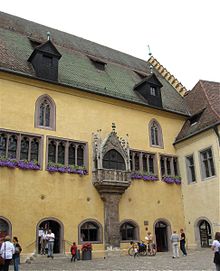
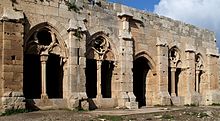

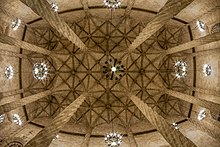


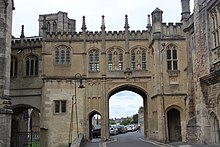


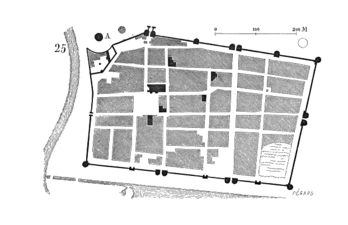
![Plan of Caernarfon, Wales from 1610, showing the castral town established in Wales to "illustrate in a more symbolic than strategic fashion English power."[12]](https://upload.wikimedia.org/wikipedia/commons/thumb/8/8c/Caernarfon.1610.jpg/311px-Caernarfon.1610.jpg)
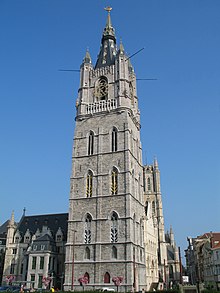





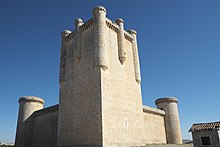
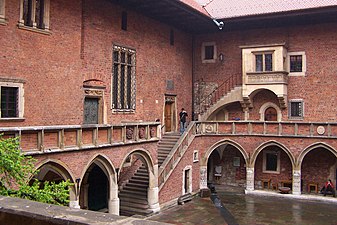



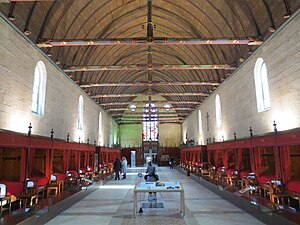

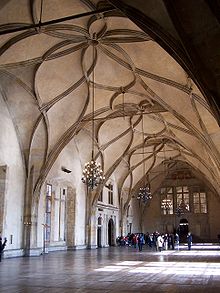




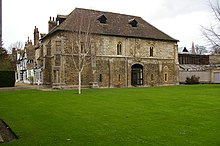
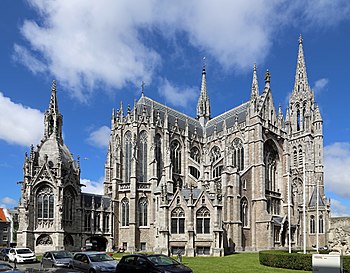

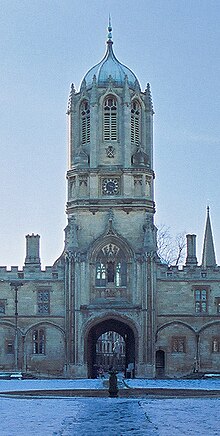

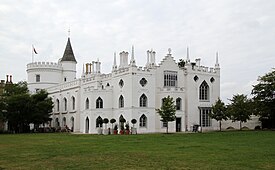
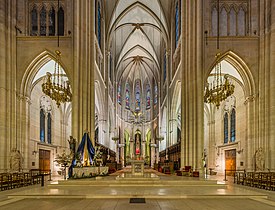












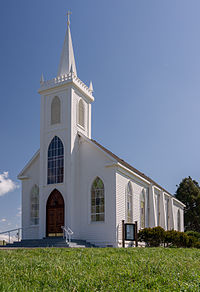






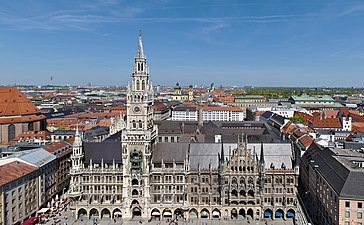



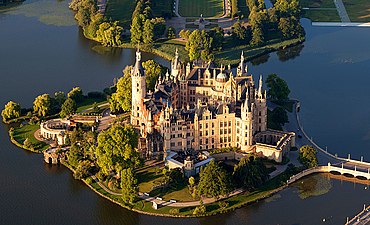
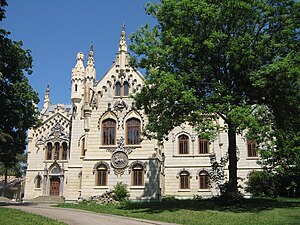


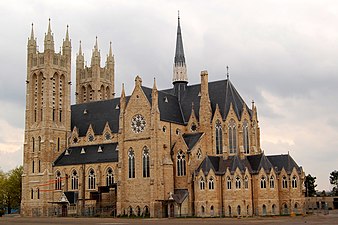




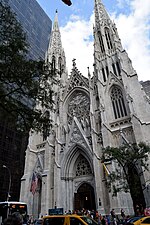

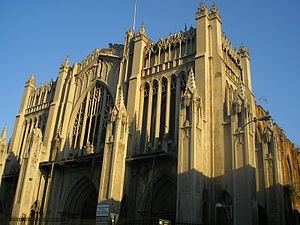
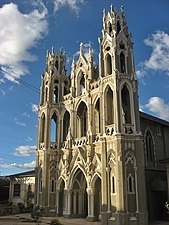


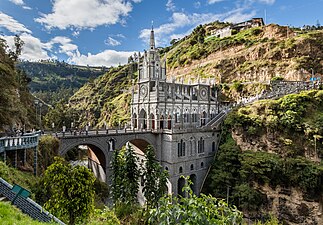


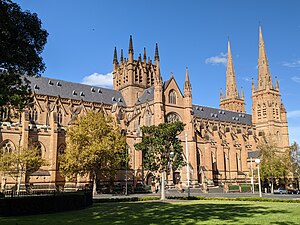






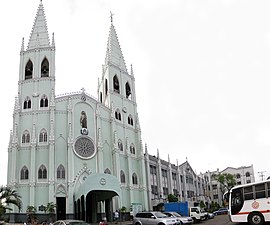


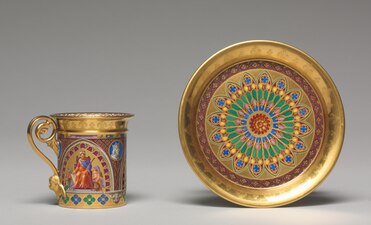


No comments:
Post a Comment